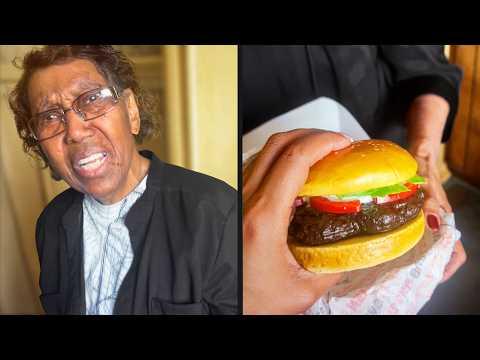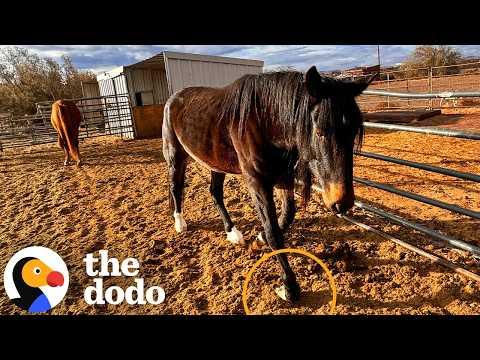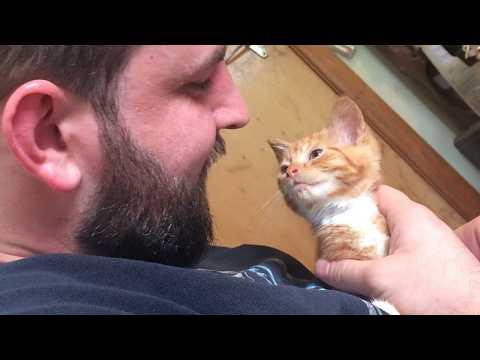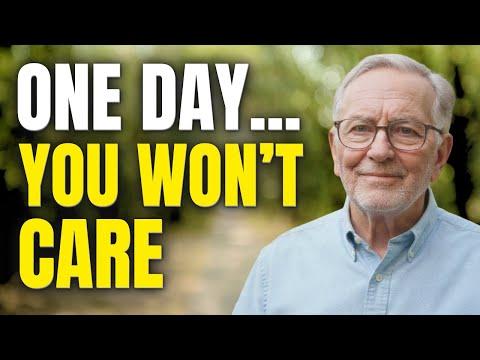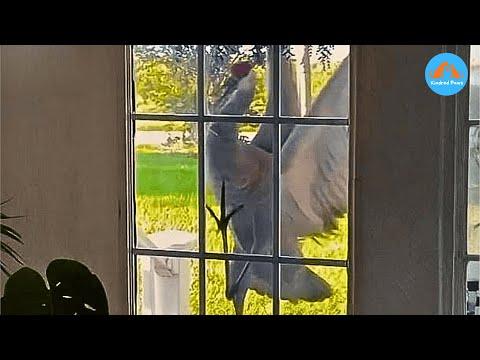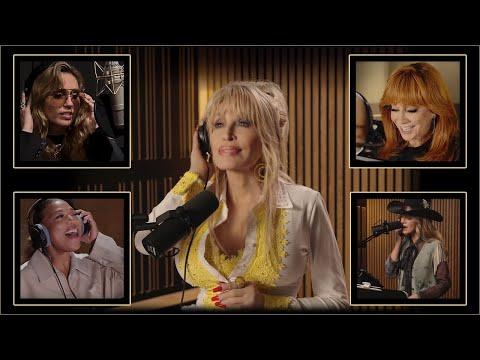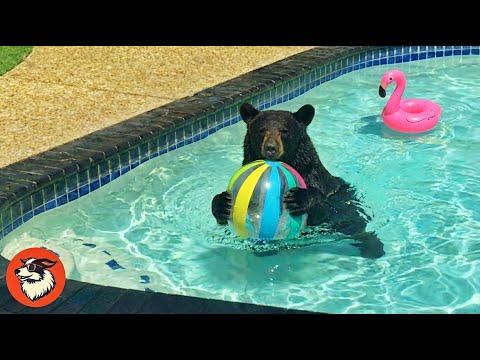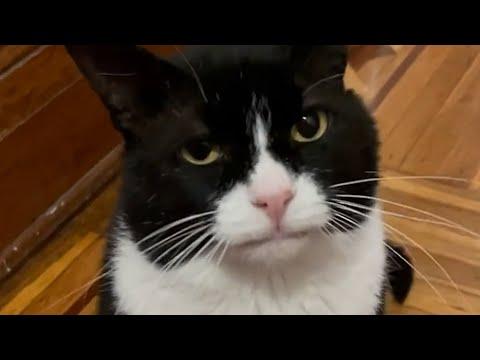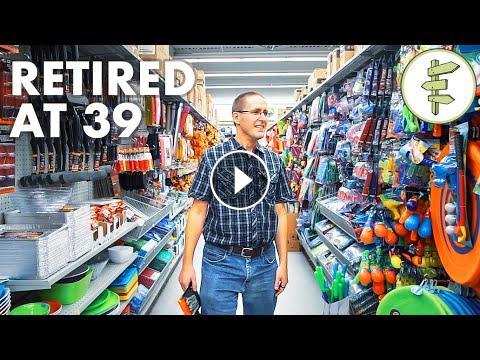Tim Stobbs is married with two children, and he retired from his career at 39 years old. How did he do it?! In this video we ask him about the lifestyle changes he and his family made in order to reduce their spending, increase their savings, and invest enough money so they could afford to quit their jobs and live off the interest from their investments.
Tim retired in 2017 and now spends more time with his family, and on hobbies like wine-making, Dungeons and Dragons, writing, and being creative. His wife has recently closed her home-based childcare business and is planning to work for a few more years.
Tim has also started working part time at the local library which naturally raises the question: is he really retired? And the answer we've heard from him and other early retirees is that working after you retire is now a choice, so you can choose work that you enjoy, and you can choose to work part time if you wish. So you enjoy your work more, and you have a better work life balance. Sounds like a win-win situation to us!
If you'd like to learn more about Tim's journey to retiring early, check out his blog and his book, linked below!
Tim's Blog:
Canadian Dream: Free at 45
http://www.canadian-dream-free-at-45.com/
Video Script::
hey everyone in this video we're meeting Tim a man from Regina Canada who found a way to retire before his 40th birthday he's married with two kids and after eleven years of planning and working towards their goal he retired from engineering two years ago and his wife plans to retire from her childcare career in just a few years early retirement or fire is a financial strategy that involves drastically reducing your spending saving a large percentage of your income and then investing the savings so that you can afford to retire early this lifestyle is a little bit extreme and it isn't accessible to everyone but we think the basic financial concepts could be helpful for a lot of people so let's go meet up with Tim to find out how his family achieved early retirement and what they're teaching their kids about money I retired back in 2017 and it was six months before my 40th birthday I came up cause the idea of early retirement around 2006 or so and then realized Mike hey this might be possible and so we started saving some money and then got a little bit better cutting her costs figuring out what matters to us and spending appropriately but overall it took us about 11 years to actually save up the money to get towards early retirement when we started to do this we were both kind of post University up to do or student debts owed money on the carbon block we weren't ridiculously in debt we were a pretty good financial situation in broad strokes but the reality is we did still have student loan debt leftover and other issues like that so the reality is yeah first step was pay off existing debt and then it just got easier - from there we took a look at how our spending was going and then kind of went okay what matters the most to us and then focused on okay how do I reduce stuff I don't care about so you look at for example at your power bill and go okay my power bill never brought me any joy in life how do we reduce that and then oh if I change on my lightbulbs from incandescent to LEDs oh look I save a lot of money great so we did that and we just snowballed that effect on other bills like looking at our grocery bill going do we need to buy brand-name X okay let's try to a generic version do I care or does it make a difference does it taste the same the other thing we also learned too is make a lot of things from scratch and some days we've laughed because we're like oh look we're saving money but it tastes better so when people talk about cutting back it's not always a negative it's just finding out what matters to you and then finding out the best way for your family to make things work so we eat out only a couple times a year so typically our anniversary in birthdays and the occasional other special event but generally speaking we don't eat out a lot it's a choice we've made to make it special so when we do do what we really enjoy it and so our spending is very focused on the things that matter to us and we have our default of not spending money on things the other little trick that really helps me through the days is one gaited phrase for the problem your first solution should not be I'm gonna go spend money to solve it he's gonna go how do I solve this what I have at home what can I make do with do I really need this thing here for example I used to have a bread maker it broke and then I decided well I don't use it a whole lot so why am i bothering with it so I'll just when I make dough I make it with my hands it's a little more work but I don't do that often so it works and what other thing we did - that was really helpful is we've prayed off our mortgage and the car loans all in advance so we walked in retirement with lots of assets and utterly zero debt where you live matters housing costs and Canada vastly different all over the place Toronto Vancouver are off the charts in the same costs there's lots of the country that are not Vancouver and Toronto that give you other options like Regina the average housing cost is only 278 thousand or something like that so it's a fraction of other locations so yes I live in Regina there's an upside to that too a lot of our money is invested in very basic straightforward strategies I want something that's simple that I don't have to expend a lot of time on so we invested in exchange-traded funds that mirror major indexes as to worries the reality is yeah I still worry I've trained myself not to check the stock market because the reality a lot of it is background noise it goes up it goes down it goes up because go ahead I'm worried about what does it do over a year not a date as I initially when you're switching to living off the stock market those wild gyrations can feel really horrifying so I think a little bit more cushion would have been helpful just psychologically more than anything just sleep at night factor the other downside I would say is the weird conversations with people and they're like you're really tired but you can't be retired you're too young so I actually started changing how I represent a bit and said oh I retired from an engineering career to pursue a writing career like oh okay then talk about a new X book project which is a lot easier and fun I actually started the blog of my early retirement journey back in 2006 so you can literally see the entire journey through my doubts my learning me not understanding how the math worked mixing it several times and doubting situations and stuff like that and then learning more as I go I also wrote a book called three at forty five I thought there was a absence in the world of discussion about yes retiring early is good but if you're not happy while being retired what's the point so I wanted to marry this together and talk about being happy and early retired at the same time the first year is actually problematic I'll say to just about anyone who's ever done a major lifestyle change it's the same thing and it's really confusing you go through a lot of emotions and it's deprogramming yourself to realize you don't have to do as much as you used to do and to do other things you enjoy so like one of the things that you used to do early want to help with that was I created to-do lists but included fun items on though so it might to-do lists were an owners thing but rather a tool to help me accomplish what I want to get done in a week for example I've been making my own wine for a number of years but then the last couple of years expended more into beer making other hobbies have gotten into is I used to play Dungeons and Dragons and so I've reached gathered this hobby and even introduced my kids to it which spawned this whole secondary hobby of now making little pieces of terrain out of foam and paint and stuff and I enjoy the artistic process of making pretty looking rocks I've been married for 19 years and I've got two boys ones 14 the other ones 11 and so we're very busy with them a lot of the things we've taught the kids are about money have been about focusing on the problems we see adults having issues with like delayed gratification be able to save up and then spend the money on things rather than going to debt we gave them allowance very early on and then we let them spend it on whatever they wanted so when a five-year-old has allowance kids everybody spends it on I want a hug wheel car every time we go to the store once a week ok yeah and we had a lot of hot well cars like a lot and eventually he's like I want this well that costs $3 you have one dollar would you like to save up for that well let me explain the idea of well if you don't buy the hot wheel car now in the third week you can afford the big thing you want okay and so you did it and so we trained them very young on those very core psychological tricks about spending and so now we have two kids that are default ly saved money without anybody knowing what they're saving for well one thing that a friend told me like way back when we were pregnant with our first kid he's like kids are constant drain on you what you spend it on changes as they age so you start with diapers and then it's more clothes and then it's more school supplies and then it keeps changing as you go along but the reality is the drains constant get used to it ironically really great advice for racing kids because you realize like we took out cash every month for the kids and put it aside so someone's you'd spend less and others way more but the reality is over the course of the year it averages out to the same amount of money so my wife set that up and very early on that she managers that cash flow so she knows okay one of the kids needs winter boots coming up this year so she's putting money aside for September and October because we know those big Bill's coming the other thing we did too is we've saved registered education savings plans for them for college and university I had that fully filled before leavings so that's a really handy thing for us to have done is pre saved all this money and put her side so now that it can just keep growing in interest and so when they we do want to go to university or something else we can take the money out and use the front of that what we had decided is what I was talking to my wife about asking what she wanted to do because this is a major part of this whole equation as well do you want to leave work same time I do are you happy well here you doing and she decided that she was very happy at her job want to continue doing it and so what we decided is okay we're going to depend so partly on your income for a few years so I built them to the plan assuming she was gonna work for a few more years which helps offset some of our spending and it worked out really great for us because then it gives us this extra cushion beyond what we'd saved going okay if things go horribly wrong we still have this extra income coming in which is gonna offset problems what you work out really well cuz about oh the year into it the stock market manager did a major decline and I had this little did I do the right thing because this could work out and it ironically it worked out fabulously in the long run it's just it's hard when your income is coming from your investments to see them drop so suddenly and to tell you're in that situation you really don't know how you're going to react emotionally so I written out a plan in advance of if the stock market declines this much you may do the following things otherwise it still sit on your hands we have to stay away from the mouse do not click trade great idea by the way I highly recommend you write out an investment plan about this will you're calm and rational because when you're emotional and things are going horribly wrong you're like it gives you a what point do I open Plan B or a parachute and having written that out it kept you've already thought about what okay I can take a loan if I need to temporarily I can get at your part-time job I can and you rationally think about things so when things do go bad you're actually looking at your notes going alright I'm okay I have this option and this option and this option so one of the options for example a long-term we always plan is we have a housewarming boyfriends a daycare which ends up being quite a bit of space we know we'll probably downsize in the long term that's not built on the plan so any savings I have for lower taxes or water bill etc and less money spent on the house and any extra income from that sale we'd be able to use to offset any losses so we have backup plans in case things go wrong because like gravity is well life never according to plan [Music] living in Canada is great for the purposes of our tax dollars pay our health care costs in advance the reality is I've massively over contributed to that system so basic health care costs are all covered in government benefits that doesn't mean everything is covered we still have dental costs we still have prescription eyewear cost and those we've chosen to self-insure so the reality is we're paying for those out-of-pocket as things come up the other thing in Canada we do have some government and if it's similar to social security in the US there's all the obscurity in the Canada Pension Plan both of those are baked into my plan longer term but the reality is I've assumed significantly less in both cases for example old age security me my wife will should both qualify but to be conservative we assumed only one of us actually collects on it one of us dies early we still find that's baking of the plant we're good [Music] I was helping out at the local school shelving books once in a while and found I kind of liked it and then a job came open at the local library where they're looking for someone to do the same job like well that sounds like fun I could do that and work with great people who love books and like oh okay this could be really great and then oh by the way they're gonna pay you what I get paid sweet so I applied got the job and was like oh it's a term job so if I don't like it I can always just let the term lapse and don't go back but I found out I'm tall doing it that I really enjoy the work and all in all it's been like oh I get paid it's just the icing on the cake I don't actually need the money I just use it to help fund extra fication things so it's most work I think is tolerable as long as it's not full-time what I realized in work is like I really just like my whole life being work now it's much more balanced I think a lot more people would be a lot happier on reduced hours one of the great things about retirement is all that extra time to spend on things you want and so it's great because I changed my focusing with my children all the times they'd asked you to do something and be like oh maybe I got three other things to do now I always default the yes and so it's been really nice to spend more time with them if you're interested in early retirement we'll put links to Tim's blog his book and other resources in the description below please share this video if you liked it thank you so much for watching and we'll see you next time
- Category
- Variety



